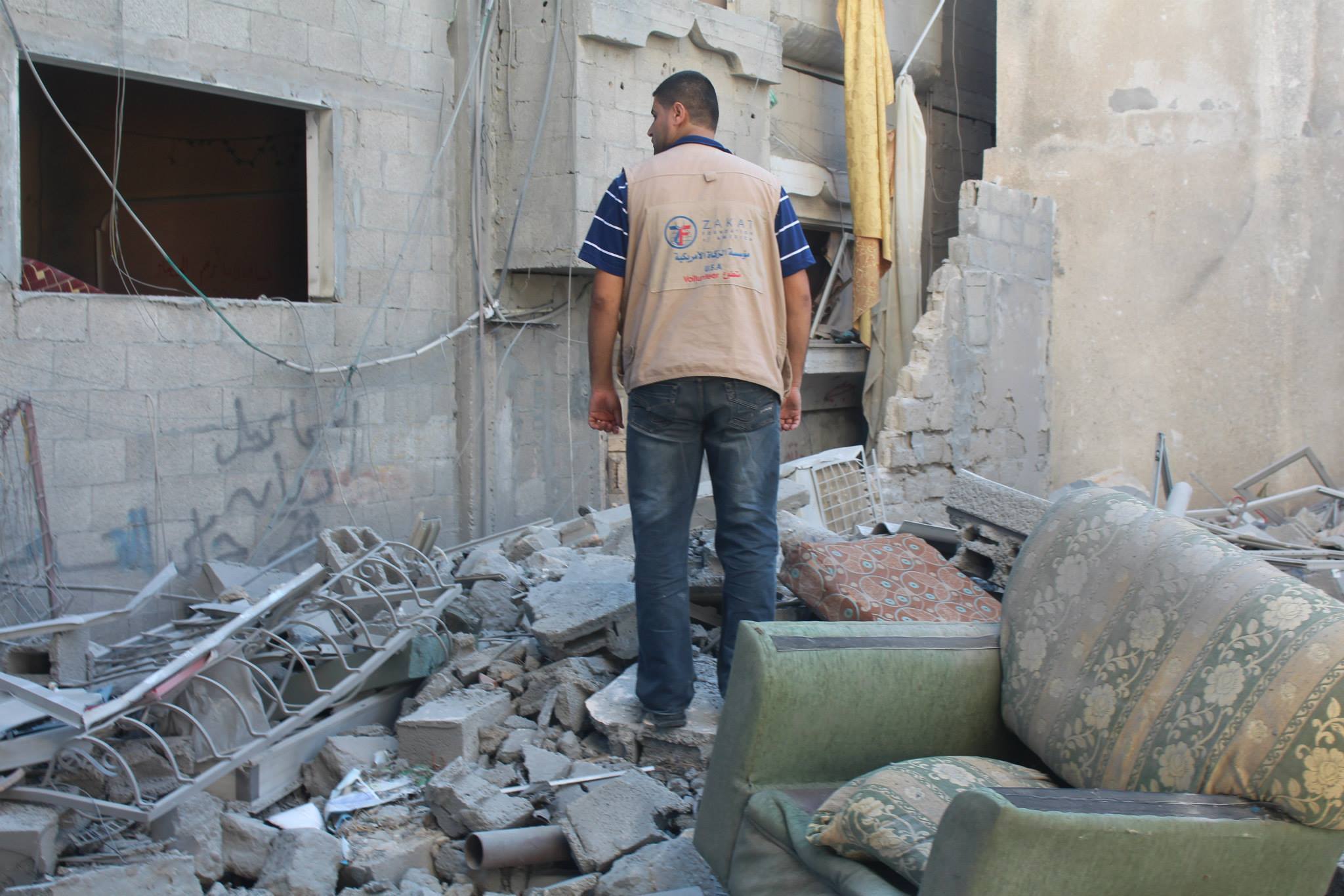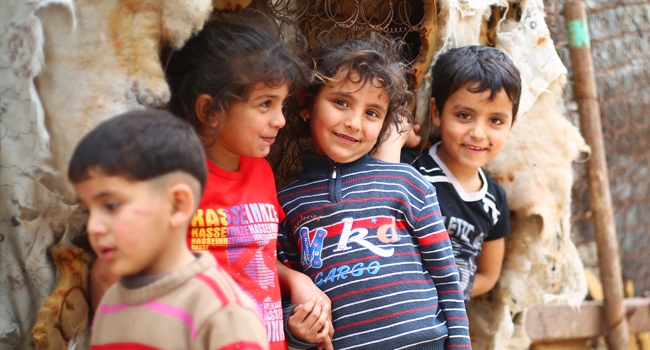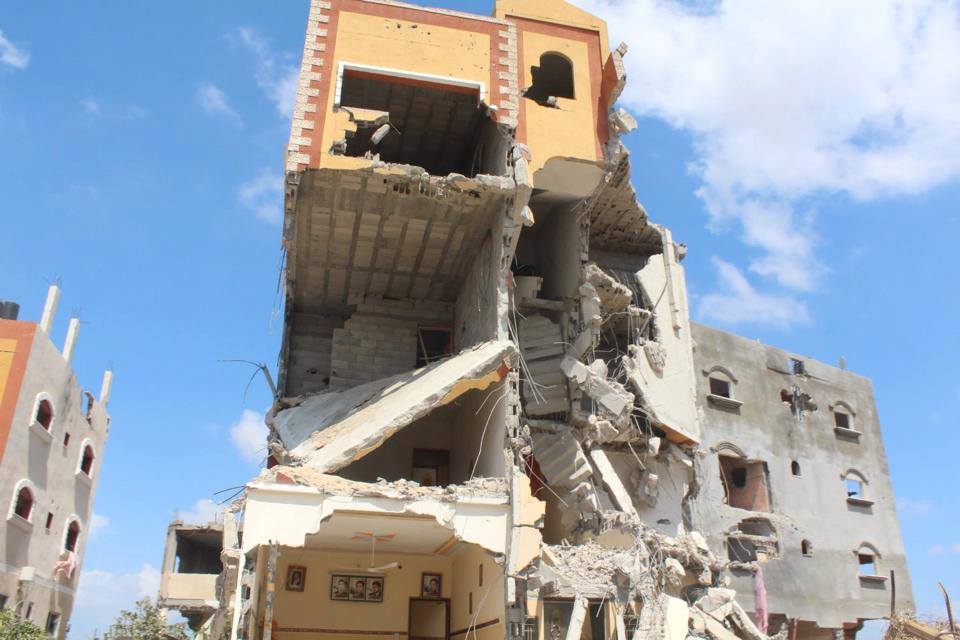A summer that will never be forgotten
This article was originally published August 2016 in Palestine in America’s second annual print issue.
Contributors Aymen Abdel Halim and Naeem Vahora
It’s been two years, and Gaza is still in ruins. As Israeli rockets descended upon the Gaza Strip in the summer of 2014, countless schools, hospitals, mosques, UN shelters, and vital infrastructure came under fire. The brutal and indiscriminate 51-day assault further accelerated the already grave humanitarian disaster in the besieged strip.
According to the United Nations, between the first week of July and late August, over 2,000 Palestinians were killed, including nearly 600 children and 300 women. Amidst the high casualty rate, over 18,000 homes were completely destroyed or severely damaged. As a result, the attacks led to a homelessness crisis which left tens of thousands of people displaced and over 100,000 in need of long term shelter.
Furthermore, despite attempts at repairs, electricity outages of 18 hours a day continue in most areas across Gaza, and only 10 percent of the population receive water once a day. Now, nearly half a million people are unable to access municipal water due to severe infrastructural damage. Irrespective of the data, the damage done to Gaza can never truly be measureable by numbers or statistics. It is more effectively understood by the stories that emerge from the human experience.
If a person’s main news source on the attacks was U.S. media, it is very likely they didn’t learn about the insufferable atrocities committed against Palestinians that summer. And still, two years on, U.S. media fails to recognize the existence of the humanitarian disaster in Gaza, let alone share the stories of people going through it. For the people of Gaza, however, suffering continues to exist in their daily realities and can never be forgotten.
Those who have survived remain traumatized and are either homeless or take shelter in severely damaged homes. After the attacks, a number of NGOs attempted to supply construction materials and humanitarian aid to the people of Gaza but were repeatedly rejected due to Israel’s illegal blockade. Over time, mounting pressure on Israel and increased Palestinian solidarity efforts have helped create windows of opportunities for NGOs and charity organizations to assist the people of Gaza with humanitarian aid.
Photo Credit: Zakat Foundation of America
Zakat Foundation of America (ZF), a Chicago-based charity organization, launched a campaign last June to rebuild hundreds of homes in Gaza as part of a multi-phase project. The group is partnering with the United Nations Relief and Works Agency (UNRWA) to reach 500 families within the first phase. By sharing families’ stories, the group hopes to create awareness about the humanitarian disaster in Gaza while actively supporting people on the ground with their Rebuild Gaza program.
One of the many families ZF and UNRWA will be rebuilding a home for are the Mustghfar family.
The Mustghfar family lost their home in the 2014 attacks when their neighbors’ four story home collapsed onto theirs.
“After hearing the sound of the missile, we carried our kids and ran away to the streets looking for safe place. We had to evacuate the place for a whole day… [when we returned] we were terrified to see that the house beside our house fell on our house, demolishing it. That was Allah’s will. We went to check on the house. Everything was destroyed,” the father said.
His four children now suffer from psychological trauma. At night, they often wake up screaming and running when they hear loud noises, afraid that the sound may be missiles coming their way. Sadly, this trauma is a common case for many families across Gaza as UNICEF reports that more than 300,000 children still need emotional and psychological support.
In the neighborhood of Farrahin, Summaya*, an elderly Palestinian lady who experienced decades of Zionist oppression, including the Nakba in 1948 and Naksa in 1967, now sleeps in a tent with her family in front of the rubble and debris that used to be their home. A few blocks away, Mahmoud* is visiting the ruins of his home with his son. “I cannot describe my feeling,” he said. “My children had a room full of toys here. Now they are sleeping on the sand. The suffering is indescribable.” Whether old or young, during the attacks, no human’s sanctity was protected.
Rania*, a Palestinian refugee, will also never forget the summer of 2014. She was in the city of Rafah with her seven children when the bombs started falling. As the Palestinian death toll increased, she wanted to leave Gaza to secure the safety of her children—but there was no way to escape due to the blockade. Rania still remembers the moment the Israeli military shelled her neighborhood—shaking her home and her family’s life to their core. The damage from the attack is still visible on her home as a consistent and traumatic reminder. For most people around the world, the possibility of a missile striking their home at any second is unimaginable. For Palestinians in Gaza, it’s a far too commonplace reality.
In the same city, the Ismael family, who are also Palestinian refugees, watched as the flare of descending rockets lit up the nighttime sky. Each time they heard the deafening sound of bombs dropping on Gaza, they knew more innocent lives were taken. This was something they were very used to being from Rafah, a city that has been targeted in Israeli attacks on Gaza in the past several years. This time, however, war hit close to home when their own neighborhood came under attack. A fierce explosion left major cracks in their home that are still there today; leaving the house in an extremely unsafe and unstable condition. The family has no other choice but to stay where they are.
Lifting the blockade, ending the humanitarian disaster, and rebuilding Gaza home by home will not be a quick or easy task. Surely, humanitarian aid workers and the people of Gaza have a lot of work ahead of them, but it can and will be accomplished through international humanitarian solidarity efforts. To paraphrase Dr. Martin Luther King, Jr., the arc of our moral universe is long, but it bends toward justice. Human history has shown us that justice is inevitable if humanitarians continue demanding and effectively changing the status quo with their solidarity work. It’s no different when it comes to Palestine.
While the people of Gaza maintain their resilience and steadfastness in the face of a brutal siege and crippling conditions, it’s our duty to act on their behalf.
Until then, Gaza is still waiting.
*Last names were removed to protect the privacy of the victims in this story.







